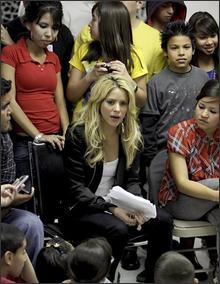WASHINGTON The Obama administration has told the United Nations that America’s human rights record is less than perfect but stressed that the U.S. political system has built-in safeguards that promote improvements.In its first-ever report to the U.N. Human Rights Council on conditions in the United States, the State Department said Monday that some Americans, notably minorities, are still victims of discrimination. Despite success in reforming such inequities as slavery and the denial of women’s right to vote, the department said, considerable progress is still needed.”Although we have made great strides, work remains to meet our goal of ensuring equality before the law for all,” it said.
The report noted that although the U.S. now has an African-American president and that women and Hispanics have won greater social and economic success, large segments of American society suffer from unfair policies and practices.High unemployment rates, hate crime, poverty, poor housing, lack of access to health care and discriminatory hiring practices are among the challenges the report identified as affecting blacks, Latinos, Muslims, South Asians, Native Americans and gays and lesbians in the United States.
The report, which drew on meetings that U.S. officials held with various groups around the country since January, also cited concerns from civil rights activists and citizens related to immigration and racial profiling by law enforcement agencies.The 29-page report was submitted to the Human Rights Council on Friday but was not published until Monday. Members of the council, which the United States joined only last year, are required to submit reviews of their rights records. The report was the first “Universal Periodic Review” produced by the U.S.
In one of his first moves to reach out to the international community, President Barack Obama decided that the U.S. should run for a seat on the council. The Bush administration had shunned the panel for years over its alleged disproportionate criticism of Israel and membership that includes repressive regimes.The report’s findings were cautiously welcomed by human rights activists but will likely draw fire from conservatives who opposed joining the council. They said the U.S. should not be judged by countries with poor human rights records.
The administration sought to rebuff such criticism in the report, saying its participation in the review was not an acknowledgment “of commonality with states that systematically abuse human rights.” It also said the report did not reflect “doubt in the ability of the American political system to deliver progress for its citizens.”At the same time, it said that the U.S. welcomed “observations and recommendations” from council members “that can help us on that road to a more perfect union.”
The American Civil Liberties Union praised the administration for engaging with the council but said the report neglected to address key areas where the U.S. has not met its human rights obligations. Those areas include inhumane prison conditions, racial disparities in death penalty cases, and abuses in the immigration detention system.”It is time for the U.S. to match its human rights rhetoric with concrete domestic policies and actions and create a human rights culture and infrastructure that promote American values of equality and justice for all,” said Jamil Dakwar, director of the ACLU’s human rights program.(AP)


